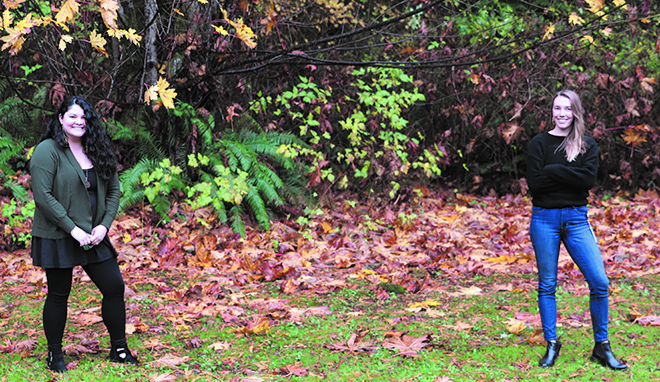
By Kalvin Valdillez, Tulalip News
Did you know that there is a program that helps with resources, education, and general support designed specifically for Tulalip tribal families living with children? If not, you’re not alone as the program is still relatively new. A division of beda?chelh, the young program is spreading the word about their services and what they can offer Tribal families.
Stated beda?chelh manager, Natasha Fryberg, “I want to bring forth our FIT team to start getting more resources out in the community so we can create positive engagement with potential clients and families.”
The Family Intervention Team, or FIT, currently consists of two social workers, Lena Hoeflich and Kayleigh Canby, who are dedicated to aiding Tulalip families by helping them along their journey through tough times. Whether you are a single pregnant mother or a family dealing with a rebellious teen, they are available and ready to help support you and provide any services or needs you may require.
“I always describe it to clients as a voluntary program,” said Kayleigh. “Our goal is to kind of bolster the family, or bring in supports, to help them be successful in whatever they want to do. Usually, the goal is to try and keep their families together and we bring in those supports to help them be successful. We support parents, we support children, we support everybody.”
The FIT mission is to achieve immediate and lasting positive change for families, in the best interest of the children, whether you live on or off the reservation. FIT makes it their priority to see that you receive assistance and will refer you to a program, professional or specialist who will provide you with further care.
Lena explains, “We try to bridge a gap that a family might be experiencing, a hardship – whatever that may be. We meet with families and it is family-led. It’s not prescriptive, because it just depends on whatever the family needs, and whatever they’re going through at that time. For example, if someone calls and says this person was driving and their kid wasn’t in a car seat, we can come in and ask if we can educate them on the necessity of a car seat. Can we provide them with a car seat? We can ask, what else do they need? Do they need groceries? Do they need help paying bills? Do their kids need assistance being set up in online schooling?”
Some resources and services that FIT assists families with include parenting skills, housing, food and nutrition, domestic violence, independent living skills, chemical dependency, teen support and mental health.
“If a family is experiencing a really difficult time with their teenager, we work with them and get them set-up with Family Haven. We will work with them before, during, and after they have those intervention services, just to make sure that everything is continuing to go well. Or we might work with families who may have difficulty paying a bill. We look to see if there are resources within the Tribe or within the state or Snohomish County, just to try to find different ways to help,” said Lena.
Kayleigh added, “I have a mom that I’m working with right now and I’m trying to help her find a mental health counselor. At the same time, I reached out to a couple different agencies locally, she’s a pregnant mom, so she needs a bed to sleep on. We do the legwork of trying to find those materials. I have another family and their children are in need of winter clothes, so we find those resources in the community to get warm clothes for those kids.”
The majority of clients and families that FIT has helped so far are referrals from Child Protective Services. However, FIT wishes to assure Tribal members that they are here for the people, and welcome any community-referred and self-referred clients. Although they are an extension of beda?chelh, their focus is to work with clients and take preventive measures and progressive steps to help keep families together.
“A lot of families have a huge support network, but there are other individuals who don’t have any support networks at all,” Kayleigh expressed. “We’re here to help support them, we are apart from CPS. We are a voluntary program, we’re not going to hunt you down or tell you what to do. I think that’s the biggest message is that we’re just here to help, we’re here to raise-up the community in the ways that they want.”
Lena agreed, saying, “I think that’s a distinction that we’re trying hard to make people understand, because when we do call and say we’re a new program with beda?chelh, that usually closes the door immediately. We’re very different. The whole point of our program is to prevent families from having interventions or any interaction, really, with CPS or the court systems. We’ll work with any family who we think would be a good ‘fit’ in the program.”
For additional information about the Family Intervention Team, please contact (360) 716-3284.